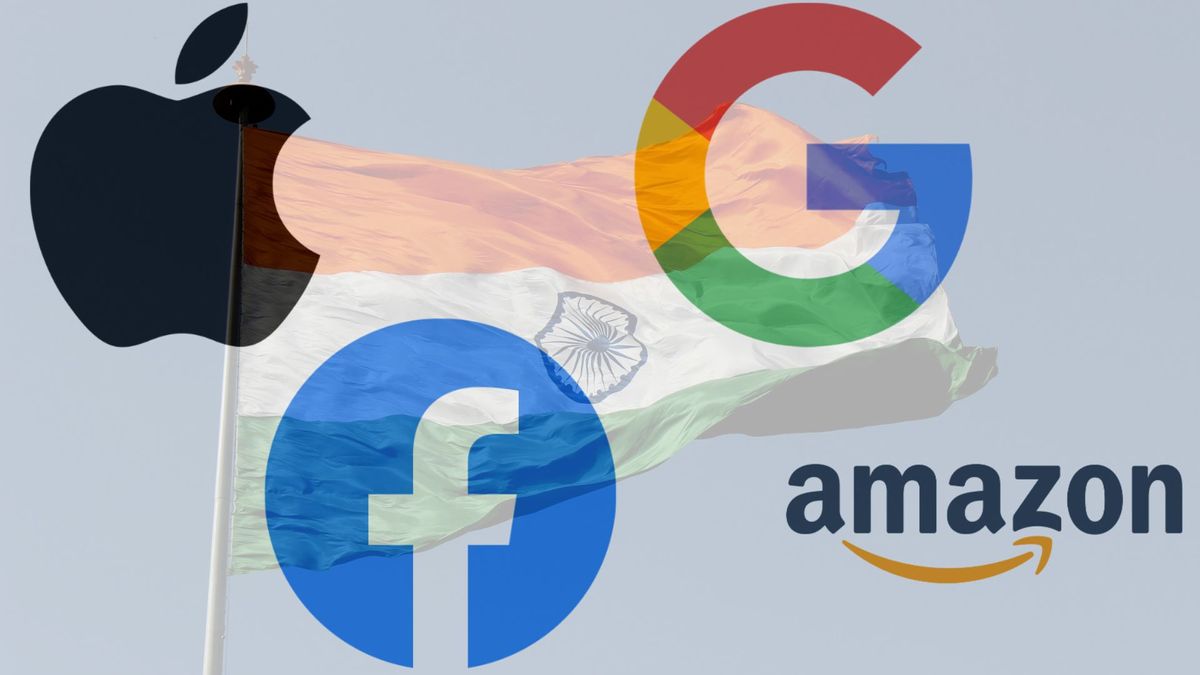Another DMA-like law is coming for Google, Meta, and others - 5 minutes read

What you need to know India is proposing a DMA-like law called the Digital Competition Bill, which aims to prevent companies like Google, Meta, and Amazon from dominating the market through anti-competitive practices.The bill outlines rules for data handling, platform neutrality, and user control. Violations could result in tech giants paying hefty fines of up to 10% of their turnover.The Indian Ministry of Electronics and Information Technology is set to hold two meetings on Thursday (June 13) and Tuesday (June 18) with different tech companies to address "serious concerns" and consider the interests of all parties involved before going ahead with the bill.
While Google and other tech companies are battling to keep up with the EU's Digital Markets Act, they'll have to watch for a new bill from India that's set to hit them soon.
The act, which has yet to be put into motion, is called the Digital Competition Bill (DCB), which could restrict Google, Meta, Apple, and Amazon from following practices that would benefit them in monopolizing the market. The bill also seeks to impose heavy penalties, which could amount to billions of dollars for violations. If the DCB were to be implied, these tech companies would have to make major changes to their platforms (via The Indian Express).
In May, U.S. lobby groups representing Google, Amazon, and Apple are pushing India to rethink this bill, citing that the regulations against data use and treatment of partners could raise user costs for these companies.
After receiving backlash, the Indian Ministry of Electronics and Information Technology is set to hold two meetings on Thursday (June 13) and Tuesday (June 18) with different tech companies to address "serious concerns" and consider the interests of all parties involved before going ahead with this bill, according to official sources.
What is this bill and who does it impact?India’s Ministry of Corporate Affairs released the Draft Digital Competition Bill on March 12. The bill aims to promote fair competition practices, especially for large tech companies. The focus remains on social media sites and search engines, which will be designated Systematically Significant Digital Enterprises (SSDE) based on their user base, market influence, and revenue.
The quantitative parameters for a company to be designated an SSDE are:
If in the last 3 financial years, its turnover in India is not less than Rs 4,000 crore, or its global turnover is not less than $30 billion, orIts gross merchandise value in India is not less than Rs 16,000 crore orIts global market capitalization is not less than $75 billion orThese companies' core digital services should have at least 1 crore end users or 10,000 business users.This bill takes what's called the "ex-ante" approach, meaning it aims to prevent anti-competitive practices even before they happen, unlike the current laws that intervene after the fact.
The Indian government says these new regulations are needed as the digital market is "increasingly becoming concentrated," with a few large companies having "immense control over the market." According to the panel, this bill favors smaller digital firms and startups that rely on big tech giants, prompting an "imbalance of power."
The bill aims to stop companies from monopolizing the market, controlling prices, and excluding competition. It also addresses data collection, preventing large tech companies from using data collected on one platform to benefit another. For instance, Facebook cannot use the data collected on its platform to benefit Whatsapp/Instagram unless user consent is given.
The bill also addresses other aspects like allowing users to download third-party apps on their platforms (like installing a non-App Store app on an iPhone), and companies would have to give the users more control of their data, allowing them to freely choose default settings making it easier to transfer data to other platforms.
If this bill is passed, the new law will require companies to pay a penalty of up to 10% of a company's global turnover for violations.
(Image credit: Source: Joe Maring / Android Central)While this bill promises several potential benefits, some stakeholders are also raising concerns. The Information Technology and Innovation Foundation argues that the bill's benefits of an ex-ante regime will outweigh its harms, "and in particular a reduction in the dynamic competition that is often the best corrective to market failure in fast-moving digital markets."
They also argue that the bill might put a compliance burden on these tech companies, pushing them to increase the cost of their services to users. Some argue that the regulations could stifle the relationship of international companies with India, hampering economic growth.
According to Reuters, companies like Amazon and Flipkart are being examined for promoting select sellers on their e-commerce platforms, hurting rivals. Many times, Google has been brought into the ring of fire and faced antitrust fines in legal battles for abusing its position in the Android mobile operating system market, restricting users' ability to remove pre-installed apps.
The law proposal and feedback received will now be reviewed by the Ministry of Corporate Affairs and its minister, Nirmala Sitharaman.
Source: Android Central
Powered by NewsAPI.org